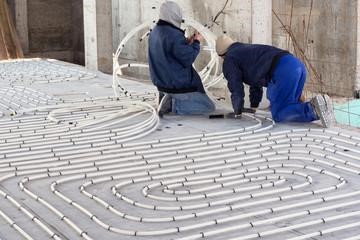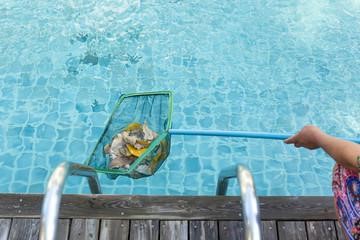Miami Pool Heater Installation Costs
Costs of Pool Heater Installation in Miami

Solar pool heating is one of the most economically attractive solar technologies in Florida currently. If you are concerned about heating your pool, or can no longer afford heating it with fossil fuel alone, consider installing a solar pool heater.
The following information helps answer the most frequently asked questions regarding the costs of pool heater installation in Miami. Keep in mind that much of this information is “rule of thumb”; your situation, if analyzed in detail, may vary slightly from the general application.
Q: What would it cost to heat my pool with a standard fossil fuel heater?
There are almost 800,000 swimming pools (including above-ground) in Florida, and many of them must be heated during the colder months to maintain comfortable swimming conditions. An unheated pool will usually stay at about the average outdoor temperature, which may be as low as 53°F in north Florida in winter. For the specific user, comfortable pool water temperatures are 78°F to 82°F in spring and fall and 76°F to 78°F in winter.
The average annual cost for heating a residential pool in Florida is $1,450 using electrical resistance (electricity at $0.09/kWh), $500 using an electric heat pump, and $580 using natural gas. Liquid propane would cost similar to electrical resistance.
Q: How does solar compare with other types of pool heating?
A standard solar heating system costs from $2,000 to $4,000 installed. Compared with average fossil fuel heating, a solar pool heater provides the most favorable payback of 1.5 to 7 years. Additionally, the solar pool heating industry in Florida is mature. It has many distributors and contractors and a track record of many years of experience.
Please note that the actual cost of solar pool heating systems depends on numerous factors — ease of installation, type of financing, location of the pool in north or south, length of pool season desired, and building code requirements. These variables cause price variations, and the homeowner should talk to more than one dealer-installer when considering to buy.
Q: What about maintenance?

A properly installed solar pool heating system should need very little or no maintenance. Nevertheless, regular maintenance of the pool and its filtration system is crucial. Pool pH and chlorine levels must be maintained within limits stated by the pool water test kits.
Chemicals need to be added to the pool water far from the collector intake pipes. The filter should be cleaned as regularly as is recommended by the manufacturer to ensure that adequate flow is supplied to the collectors. Check the solar pool heater system for proper operation at the beginning of each swimming season, specifically if it has an automatic control.
Remember, an appropriately operating solar collector feels cool to the touch. The temperature increase of the water going through the collectors should be from 3°F to 5°F for the most efficient operation.
Q: What about pool covers?
The most significant loss of heat from a pool results from its surface because of evaporation. By lowering this evaporation loss, pool covers are instrumental in lengthening the swimming season. They also keep the pool clean, thus reducing the cost of chemicals and filter maintenance. Depending on materials and the number of hours of use, temperature increases of 5°F to 10°F may be anticipated from a pool cover. A 5°F increase is reasonable when the cover is used 12 hours a day; 10°F when it is used 20 hours a day.
Transparent or slightly translucent covers work best since they allow solar energy to pass through and be absorbed by the pool water, and they also prevent heat loss at night. Opaque covers are best used in Florida at night to stop heat loss. A roller is an excellent investment to assist you in moving the cover on and off the pool. We also have motorized rollers.
Solar pool heater covers will last from three to five years, depending on care in handling and storage. However, they are your best purchase for an extended swimming season. From the perspective of energy conservation, a solar pool heater cover should be used.
